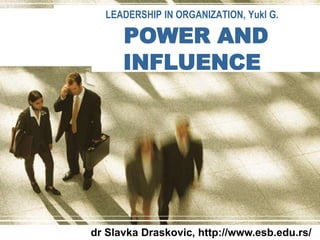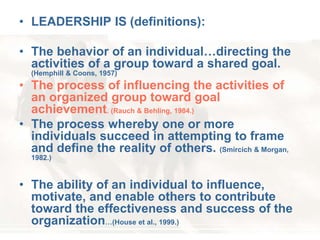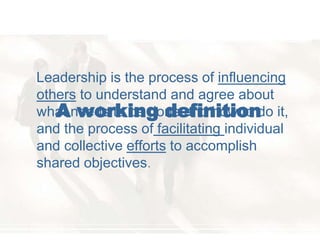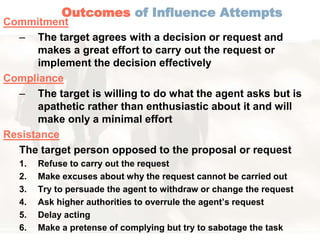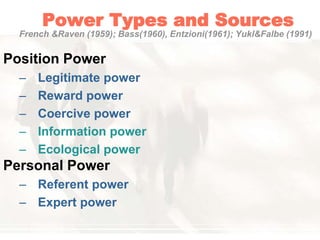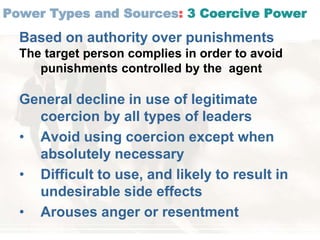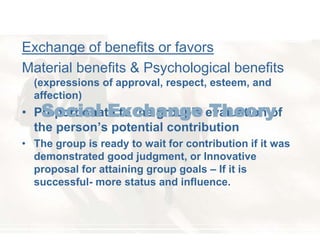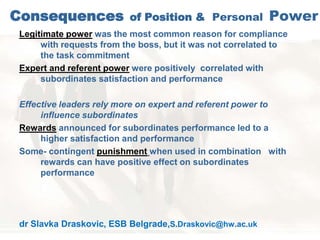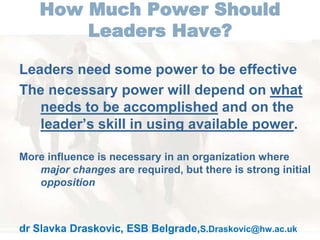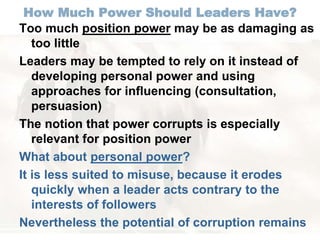This document discusses leadership and power in organizations. It defines leadership as the process of influencing others to work towards shared objectives. There are different conceptions of power, including power as the ability to influence others and authority as the right to exercise control based on one's position. Power can lead to commitment, compliance, or resistance from targets. Leaders have different types and sources of power, such as position power (legitimate, reward, coercive), personal power (referent, expert), and ecological power over the environment. Power is not static and can be gained or lost over time based on social exchange theory and strategic contingencies theory. Effective leaders rely more on expert and referent power. The document concludes that leaders need some power
